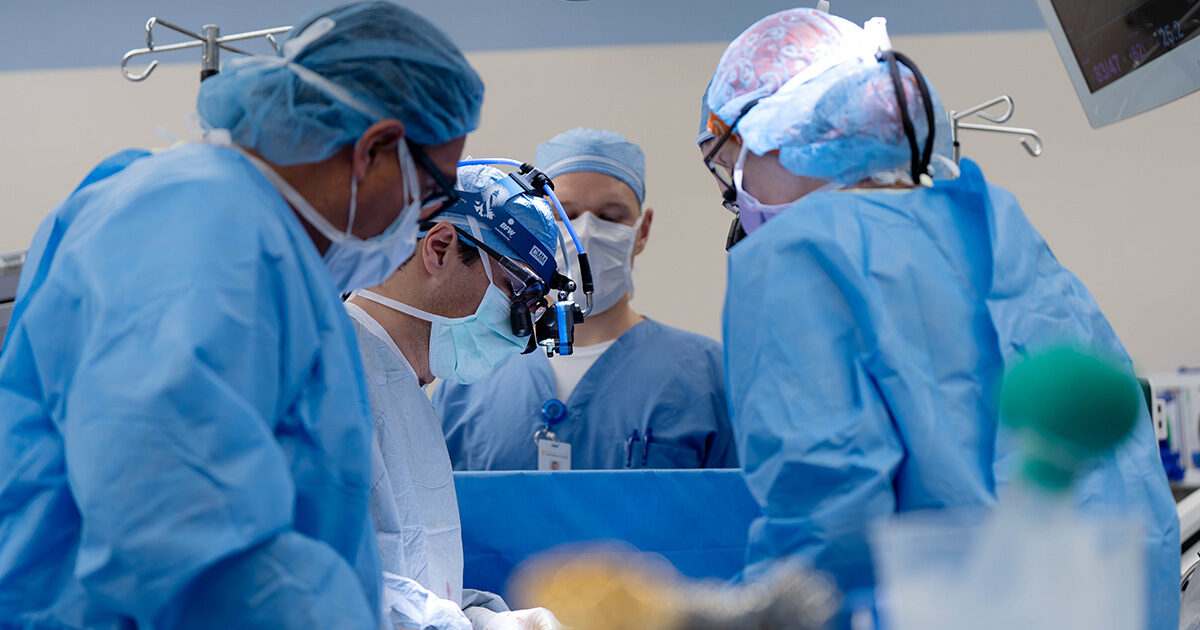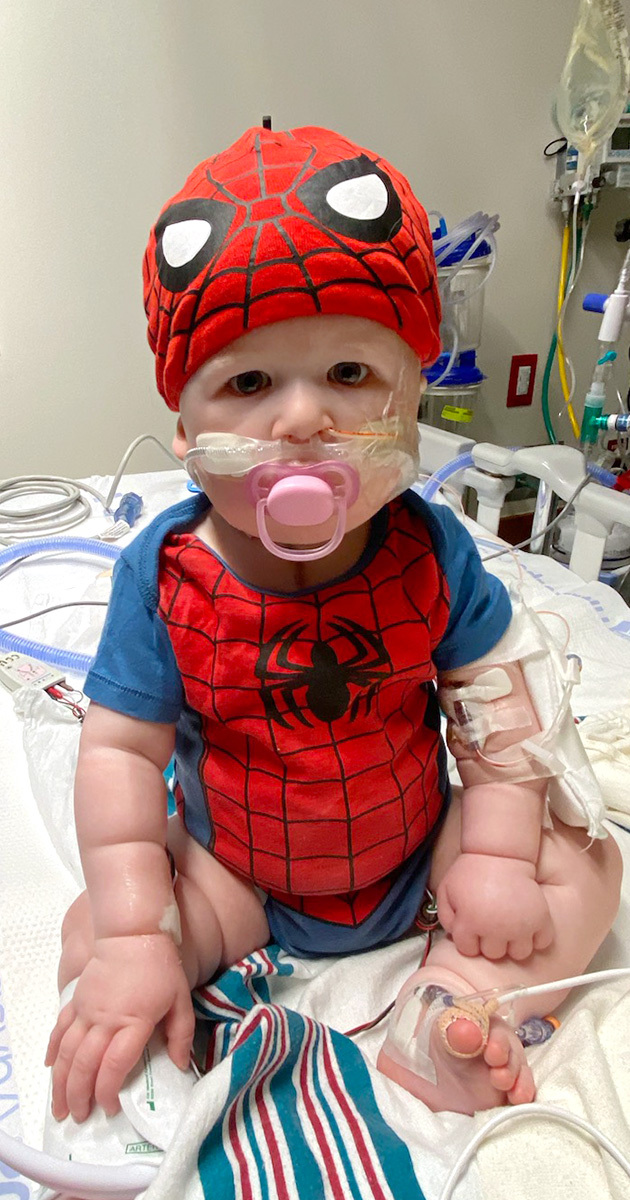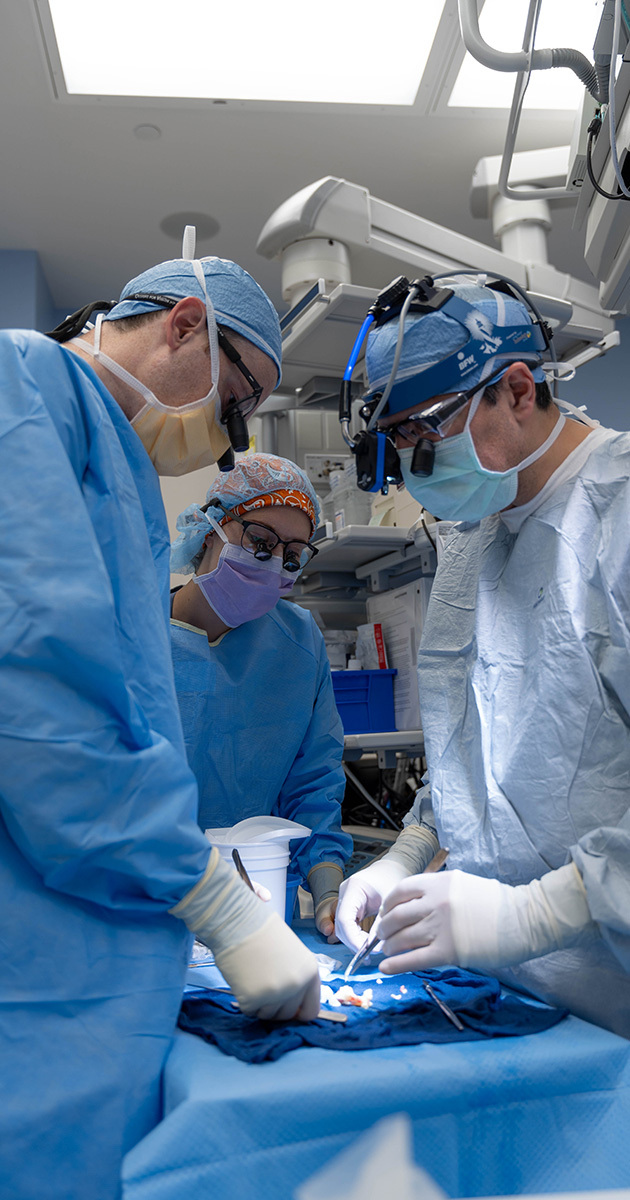Groundbreaking Procedure Becomes a Historic First for the State of Texas
The Texas Center for Pediatric and Congenital Heart Disease successfully performs the seventh known pediatric partial heart transplant
Sourced from: Dell Children's Medical Center
Written by: Ashley Lawrence

On June 23, 2023, the Texas Center for Pediatric and Congenital Heart Disease, a clinical partnership between Dell Children’s Medical Center and UT Health Austin, successfully performed its first partial heart transplant. This groundbreaking procedure is the seventh recorded instance of a pediatric partial heart transplant performed worldwide.
“Our team is excited about this procedure, as it has the potential to change the paradigm of valve surgery in pediatric heart disease,” says UT Health Austin pediatric congenital heart surgeon Carlos Mery, MD, MPH, who serves as the Associate Chief of Pediatric and Congenital Cardiothoracic Surgery for the Texas Center for Pediatric and Congenital Heart Disease. “This potentially life-saving surgery can make use of a donated heart that would otherwise not be transplantable.”

11-month-old Elias Robinson-Rodriquez was born with transposition of the great arteries (TGA) with left ventricle outflow tract obstruction (LVOTO). TGA is a rare congenital heart defect that occurs when the two major arteries attached to the heart are reversed. As a result, the heart is unable to send enough oxygenated blood to the body due to the delivery of oxygen-poor and oxygen-rich blood being switched when the pulmonary artery and aorta are reversed. While TGA can occur on its own, a child born with TGA may develop other heart defects, such as LVOTO, an obstruction of the part of the heart that pumps oxygenated blood to the body. Surgery is necessary to repair TGA and correct other heart defects.
Despite two prior open-heart surgeries, the valve between Elias’ lower left heart chamber and aorta (the body’s main artery) was narrowed and didn’t open fully, causing a blockage of blood flow from the heart to the aorta and the rest of the body. To correct this defect, baby Elias underwent an 11-hour partial heart transplantation. In a partial heart transplant, valves are procured from a donor heart that is deemed unsuitable for full transplantation, and the harvested living valves grow with the pediatric patient over time, potentially increasing their life expectancy.
“This is a milestone procedure, as a partial transplant allows surgeons to tap into a supply of donor hearts that go unused due to deficiencies,” shares UT Health Austin pediatric cardiologist Chesney Castleberry, MD, who serves as the Medical Director for the Heart Failure, VAD, and Transplant Program within the Texas Center for Pediatric and Congenital Heart Disease. “We are thrilled with Elias’ progress, and we are hopeful this will eliminate the need for future surgeries.”
Led by Dr. Castleberry and Dr. Mery, the Heart Failure, VAD, and Transplant Program care team is comprised of nationally recognized and highly specialized physicians across a variety of disciplines housed in a single cardiac care unit at Dell Children’s Medical Center. A team is built around the patient and their family to ensure they receive the highest level of specialized care and experience a seamless transition to adult congenital cardiac care.

“Our ability to perform this surgery is a major step in Dell Children’s effort to provide innovative, life-changing care for the most complex cardiac cases in the region,” notes UT Health Austin congenital heart surgeon Charles Fraser, Jr., MD, who serves as Chief of Pediatric and Congenital Heart Surgery for the Texas Center for Pediatric and Congenital Heart Disease. “This groundbreaking surgery provides hope for thousands of babies with congenital heart defects and amplifies the way we can use the gift of organ donation to save more lives.”
Only three other institutions in the U.S. have performed partial pediatric heart transplants, adding to the Texas Center for Pediatric and Congenital Heart Disease’s growing list of major milestones and monumental firsts that have significantly impacted the lives of patients and their families. In addition to this historic breakthrough, the Texas Center for Pediatric and Congenital Heart Disease was recently recognized by the Society of Thoracic Surgeons as one of the few programs in the nation with significantly better outcomes after congenital heart surgery than the national benchmark.
To learn more about the Texas Center for Pediatric and Congenital Heart Disease, visit here.